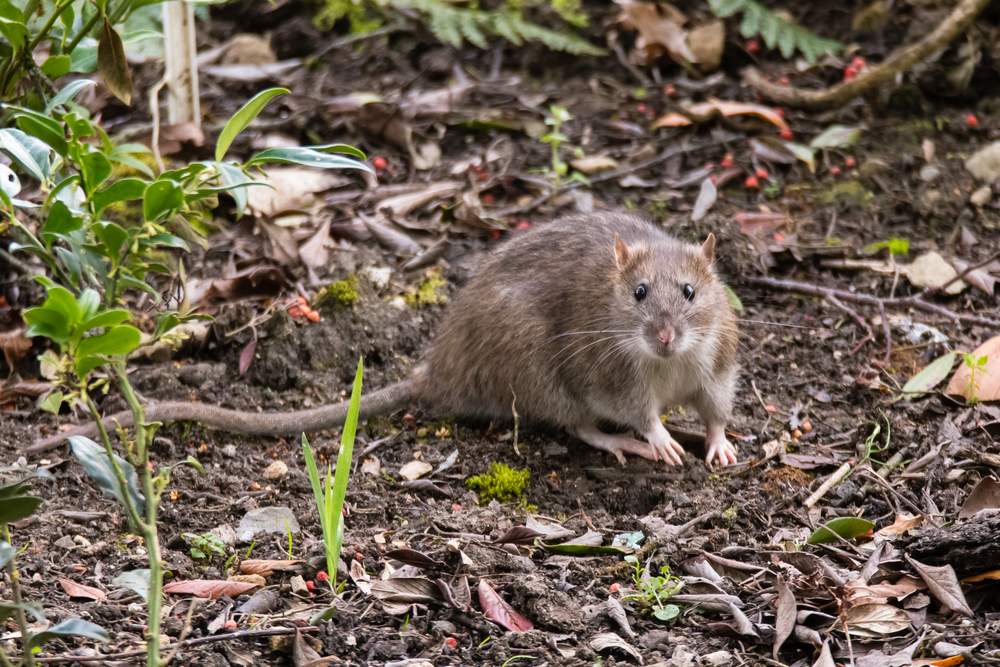How to Protect Your Garden from Rats
Rats can be one of the trickiest pest issues to resolve. If a rat problem isn’t dealt with, they can quickly turn from a nuisance into a health hazard. However, it’s not always your home they target, and you can often find rats in gardens or outside buildings such as sheds or garages. In this post, we look at some of the methods you can use to protect your garden from rats.

Why Are Rats Attracted to Gardens
Rats will set up home anywhere that provides them with their basic needs of shelter, a food source and water. Gardens can be an excellent environment for rats to thrive as they often provide all three of these in abundance. Sheds, compost bins and garages provide dry, sheltered areas for the rats to nest in. Being close to humans generally means food is available and water can be found in birdbaths, ponds or from garden hoses or sprinklers.
Are Rats Danergous if They’re Outside
Rats can pose a serious health risk to humans and your pets, whether they are inside or outside your home. As well as carrying several diseases they also have to gnaw to wear their teeth down which are constantly growing. They will happily chew through most materials found around a home, including electrical cables and wood.
What Damage Will Rats Cause in Your Garden
If you’re a keen gardener and grow and fruit or vegetables, then it’s likely these will be the first casualties. Any seeds or produce stored in sheds is likely to be a target along with the compost bin.
If your rubbish bin lid is not on securely or rubbish is left outside in black bags, these will also present an easy target.
As we’ve already covered rats teeth are constantly growing, and they need to gnaw to wear them down. Wood is a favourite gnawing choice and rats will often chew on sheds and fence panels.
Rats are also comfortable underground and dig holes and create shallow tunnel networks to move around in. This tunnelling can disturb lawns and borders and make them dangerous and unstable to walk on.
The Signs to Look for
If you think you have a rat problem, you can look out for some signs of their activity.
Rat Droppings – Droppings are a sure sign of a problem. They are typically 10mm in length and oval in shape.
Signs of Gnawing – Look for signs of chewing on sheds, fence panels, exterior wires and rubber hoses.
Smell – Over time, the smell from rat urine will build up and become pungent. Generally, it’s easier to identify urine inside rather than outside as the rain can wash away the build-up. However, if you suspect the rats are living in an outbuilding they may be urinating inside of it.
Pet Behaviour – Most cats and dogs will hunt out any unwanted garden visitors long before their owners. If your pet is digging a lot in certain areas or paying a lot of attention to holes or gaps, then they could have spotted a rat problem.
What Steps Can you Take to Protect Your Garden from Rats
It’s impossible to completely protect your garden from rats, but there are certain measures you can take to make the environment less attractive to them.
Ensure Rubbish is Inaccessible
Simple steps such as making sure your bin lid is down and not leaving bags of rubbish outside remove a large possible food source.
Buy a Pet
We are not suggesting you should buy a pet to tackle an existing rat problem. However, as a preventative measure, it can be highly effective. Rats are very unlikely to nest when a dog or cat is regularly in the garden.
Don’t Leave Food in the Garden
If you eat outside ensure all leftovers are taken inside and disposed of. Birdseed dropped from feeders can also attract rats, so try and remove any that has built upon a regular basis.
Seeking Expert Help
If you have a rat infestation it’s highly likely you will need professional help to remove them. Pest control companies have specialist equipment to deal with rats and also the experience to ensure it’s dealt with humanely and effectively.
Confirm a Kill have over 25 years’ experience dealing with unwanted pests. Our experts can provide a free assessment and quote, and all our work is guaranteed. We are members of both Prompt and NPTA, and as such you are assured of a professional pest control service.
